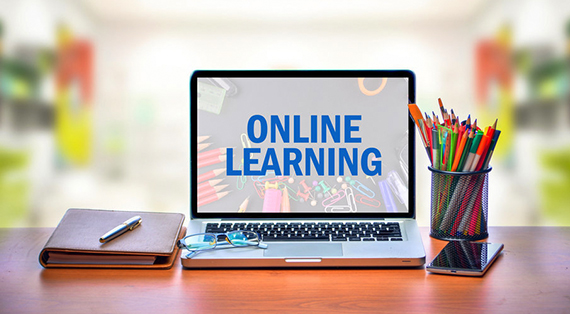
By Elizabeth LaScala, PhD
4 questions to ask about online learning
In less than a year, online learning has gone from being a ‘might have’ to being a ‘must have’ for colleges around the globe. As such, online learning is an important consideration as you create your college or graduate program list. Here are four questions to ask yourself about each college you are considering.
What is their online learning strategy?
Colleges differ in how they integrate and incorporate online learning into their teaching methodology. Some schools prioritize in-class learning and augment this learning with online activities. Others have found ways of moving entire curricula online, allowing them to cut seamlessly between purely in-person and purely online instruction. Most fall somewhere in between. Think about your preferences when you are assessing a college’s online offerings. How much do you want in-person teaching to be prioritized, and what style of online failsafe do you expect to be in place?
Remember that some colleges and programs are entirely online. There are many benefits to online learning, including added flexibility, protection from COVID-19 exposure, and a guaranteed continuity of study instead of switching back and forth between in-person and online instruction. It is worthwhile to at least consider purely online offerings as you make your list.
How long have classes been taught online?
Just because a college offers online classes does not mean they are any good. One way of assessing how their online teaching measures up is by checking when they started offering classes online. If online classes have only sprung up in the wake of COVID-19, chances are these are not as well-supported or well-designed as classes that have had at least several years of development dedicated to creating a solid online course offering.
Does what I’m paying match what I’m getting?
As courses have moved online, some colleges have offered a reduction in fees to compensate for the lack of an in-person experience. Others haven’t – after all, the cost of running a college hasn’t dropped because of COVID-19. If anything, it’s grown, as the cost of maintaining a physical space has been replaced by the cost of setting up and managing online learning infrastructure. You must ask yourself how much you are still willing to pay for this shift.
This question is especially important when assessing the online value of liberal arts colleges. Liberal arts colleges often come with a hefty price tag and a fantastic on-campus culture. However, the close-knit community these colleges pride themselves on is hard, if not impossible, to replicate in an online environment. If you are set on a liberal arts education, it may be worthwhile to consider first attending a two-year college and then transferring to the liberal arts college of your choice.
How is this college or program ranked by others?
In the past, most college ranking authorities have considered online teaching as an added (but non-essential) feature of a college. However, there are some authorities that provide college rankings based on the quality of online teaching. Educate to Career does a ranking of colleges by state according to the strength of their online programs, taking into consideration the robustness of the software and systems in place to support online learning programs, the faculty’s experience in teaching online, and the tuition and fees given the distance. There are also a number of highly ranked colleges that are purely online, especially online MBA programs.
Whether you are a high school student, a college student eyeing a graduate or professional degree or a working professional considering the pursuit of an advanced degree, be sure to keep these questions in mind as you make your lists. Online learning may very well become the new normal, at least



